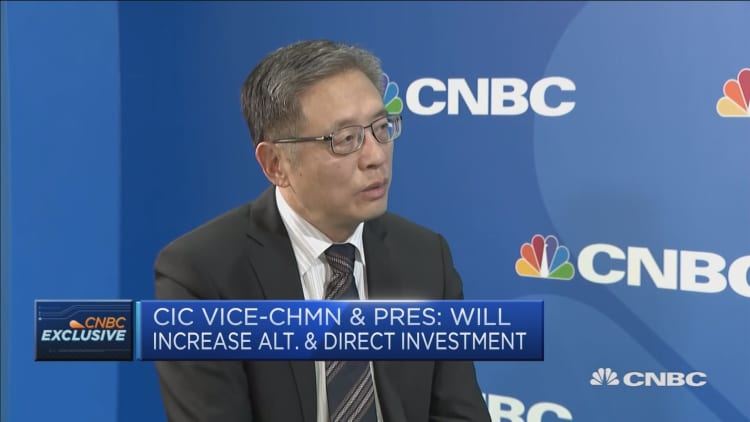
China is increasingly facing resistance within countries where it's trying to invest, according to a top official at the country's sovereign wealth fund.
China Investment Corporation (CIC) will probably gain investment opportunities thanks to an ongoing global economic recovery, but it is also "facing more difficulties and challenges" related to "protectionism," Tu Guangshao, vice chairman and president of CIC, told CNBC on the sidelines of the Asian Financial Forum.
"As CIC and China make more foreign investments, we're seeing the rise of protectionism in some countries and regions, be it the U.S. or Europe. They're making some protectionist moves, some specifically targeting China," Tu told CNBC in Mandarin.
Those comments echoed remarks from Beijing after U.S. regulators blocked a planned merger between Alibaba affiliate Ant Financial and MoneyGram, a U.S. money transfer company. The Committee on Foreign Investment in the United States halted the deal on national security concerns.
Trump and China throw up barriers
Barriers to Chinese overseas investment have risen over the past year, owing in part to the Trump administration's "America First" agenda. The U.S. initiated an anti-dumping investigation against aluminium producers in China just last year.
And even though China's leaders have proclaimed support for economic "openness" on the global stage, the country has rules in place to limit foreign investment within China and is often accused of hampering non-Chinese companies trying to operate in its domestic market.
Still, some progress may be on the horizon in liberalizing the financial industry on the mainland, including plans to allow for majority foreign equity ownership in financial sector joint-venture firms.
Ahead, Tu indicated that the sovereign wealth fund has a plan when it comes to tackling potential protectionism in its future investments.
"I think while we try to seize the opportunities out there, we have to be innovative in how we invest. Namely, we have to have more cooperation with our overseas partners, local partners, to help to reduce protectionism against Chinese investment," he said.


